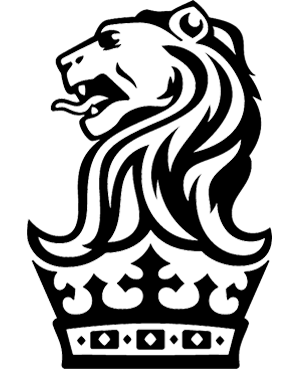Tags
#Egalitarianism
Create a 'Culture of Care'
Founder Truett Cathy set out to build a company culture where staff genuinely care for each other and put other's needs ahead of their own. But a culture like this can only flourish when "it is backed up by authentic sentiment, reinforced through action, and strengthened over time." Some key ways that Chick-fil-a fosters their Culture of Care is to:
- Inspire care through words. Leaders greet each staff member every morning with a warm hello and can spend entire one-on-one sessions discussing any problems their staff are having.
- Set an example of care through actions. After lunch, the CEO and leaders can be found clearing the staff's dishes in the cafeteria. They also make their departures very public when leaving early for family events to set a tone of work-life flexibility.
- Spread the tools for care through training. Every corporate leader goes through a two-year training program to understand the foundations of servant leadership.
- Reinforce an expectation of care through evaluations. All staff are evaluated on how they embody the company's core values during bi-annual evaluations and monthly check-ins with their manager.
Have a single vision of what leadership means
Around 2000, Chick-fil-A was having a shortage of next generation leaders. Their staff was talented but was not aligned on how to lead. This caused unintended negative consequences for the brand's culture. To fix this, Chick-fil-A set out to align the organization under one single vision of leadership guided by a list of key principles.
Vision: Great leaders serve.
Principles:
- Don't expect others to do what you are unwilling to do. Chick-fil-A leaders have given up their box seats at the Peach Bowl football game, which Chick-fil-A sponsors, to work side-by-side with their staff at the stadium's restaurant.
- Acknowledge that every member of the team is important. Chick-fil-A leaders go and introduce themselves to each employee individually at the home office. They learn staff member names, ask questions, and thank them for their service.
- If there is a line, be the last one on it. Executive privilege and servant leadership do not mix. After company events when all 1,200 staff members are on line to board the bus, the leaders are the last ones on it.
- Share opportunities and privileges with those who might otherwise never have the opportunity. When executives traveled with hourly workers to attend events, they purchased first class seats for their staff while they sat in economy.
- Be inclusive. Leaders foster an abundance mentality showing team members that there are opportunities for everyone. Chick-fil-A executives spend time with all employees across the company to hear new ideas and gain feedback.
Focus on giving, not getting
At Chick-fil-A, the widely used Be Our Guest free meal card, is not viewed as a gimmick to drive business growth (even though it does that very well), but as an opportunity to create a memorable moment for someone.
In fact, the brand's underlying intent behind any generous act is to solely bring happiness to a customer without any strings attached. Its this prevailing giving mindset that empowers employees to proactively:
- Reach out to schools and churches to see if they need any donations for upcoming events.
- Give free food to protestors, without any influence from the home office.
- Pick up trash on unkempt exit ramps along the way to work—a tradition started by the former president and continued to this day, over twenty years after his retirement.
- Send sympathy cards and free food to the widows of a valued customer.
- Donate food to shelters, soup kitchens, and emergency first responders.
- Give free meals to carpoolers during times when state governments asked people to drive less.
- Give a homeless man, not only a free meal but also their own gloves because it was cold out that day.
Be a positive influence in your employees' lives, inside and outside of work
Acts of generosity and care from Chick-fil-A leaders range between little moments of appreciation to grand gestures of kindness for their staff. It is not uncommon for restaurant owners to:
- Leave personal notes in employee paychecks
- Attend employee softball games and track meets
- Invite employees and their families over for dinner
- Invite spouses to events
- Raise money to buy a car for an employee who is reliant on a taxi to bring her to work
- Personally pay for an employee's orthodontic care
Chick-fil-A, as a company, also provides scholarships to over 7,000 employees which totaled $19 million in 2021.
Demonstrate that every job is important by getting your hands dirty
While it seems obvious that floor level employees clean the bathroom at Chick-fil-A restaurants, owners and executives clean the bathroom just as often. As founder Truett Cathy would say: "When top executives demonstrate that they don't mind doing the dirty jobs, team members understand that every job is important."
Decrease dividers, increase collaboration
Open floor plans, no private offices, and rooms with no doors or separators—this is how Patagonia strengthens communication, makes management more approachable, and provides an atmosphere of equality. As Yvon Chouinard writes: "What we lose in 'quiet thinking space' is more than made up for with better communication and an egalitarian atmosphere."
Step out of your role to help
No matter what your role or job description is at The Ritz-Carlton, if you see a way to help out, you are expected to do just that. This has led to a culture that breaks down hierarchy and creates collaboration where:
- Marketing and human resource directors serve plates at banquets to help the culinary staff.
- Supervisors drive cars down to the entrance to help doormen.
- Hotel managers assist in carrying luggage up to a room without being asked to help.
Increase empathy by putting yourself in another employee's shoes
Southwest builds empathy among staff and accelerates their development by finding ways for employees to understand the job roles of other staff through shared experiences:
- The Cutting Edge Program: Throughout the year, Southwest pilots will work side-by-side with Ramp Agents to learn first hand about what goes on underneath the plane when it's at the gate. Pilots help with unloading bags, dumping lavatories, and fueling the jets.
- Customer Relationship Training: New Customer Relations Representatives go through four weeks of training which includes firsthand experience in all things customer service, like selling tickets, issuing boarding passes, and tagging bags. They also shadow senior Representatives as they take calls and work on the computer for a week before they even can answer a call themselves.
- Walk a Mile in My Shoes: For six months one year, employees and leaders were asked (not required) to come in on their day off and visit a different department or other station and spend six hours "walking in the shoes" of another employee. Over a 6-month period, 75% of employees participated. Read the experience of one Ramp Supervisor.
- A Day in the Field: This experience is practiced all year long, and is specifically for Officers and Directors to spend several hours and sometimes days working alongside staff to better understand their roles and to say that they can truly "walk the talk."
Have your customer's experience mirror your culture
Southwest's co-founder Herb Kelleher "deplored the class mentality" and was set on creating a culture and a customer experience where everyone was treated as equals. While other airlines assigned seats and created cabin classes with tiered fare structures, Herb created an experience where no one had an assigned seat, everyone paid the same fare, and everyone had the same snack and drink choices. This experience helped speed up boarding time and kept prices low which brought them closer to their founding vision of democratizing the skies for everyone.
Don't ask employees to do something you wouldn't do yourself
Southwest employees are always willing to help out beyond their job description because their leaders do that every day. Co-founder Herb Kelleher didn’t believe in asking anyone to do something he wasn’t willing to do himself. Throughout Southwest's history, Herb and all other Southwest leaders have demonostrated their 'we're-all-in-this-together' mindset by:
- Spending Thanksgiving days helping load bags
- Helping out at ticket counters and gate areas
- Handing out snacks on flights
- Giving out ice cream to employees at their headquarters
- Bringing donuts to mechanics on the overnight shift at 4am
- Painting the walls of their headquarters and hanging photos
- Cooking Christmas dinner at a Ronald McDonald House
- Spending 25 to 30 hours flying each month to work with employees and talk with customers
Step outside your role to get the job done
The phrase, "That's not my job," doesn't exist at Southwest. Attitudes like that undermine productivity and prevent companies from being nimble and quick. Instead, Southwest lives by a 'whatever it takes' mentality where there are no rigid job descriptions and employees are expected to help out in anyway they can, no matter their actual role.
- Mechanics help ramp agents load bags.
- Pilots help customers board planes, take boarding passes, and clean up cabins.
- Leaders, including the CEO, help ramp agents load bags, help out at the ticket counter, and pass out peanuts on flights.
Co-founder Herb Kelleher would famously say: "We can’t rest on our laurels. Our Employees must rise to the challenge. If we don’t work harder, and if we don’t make sure that there is a legacy beyond us, our airline won’t be here."
Learn the job of your employees
It is part of Southwest's culture for leaders to get out and create shared experiences with their staff. Usually this takes the form of spending days helping out or spending nights having drinks with their employees. Greg Wells, who retired as Executive Vice President Daily Operations in 2021, took it one step further.
In 1999, Greg was put in charge of Flight Dispatch operations and quickly realized that "if I want to have these People accept me, and if I want to show them respect, then I really need to understand exactly what they do for a living.” He spent the next eight weeks studying at night to get his Dispatch license, even though he never intended to work as a Dispatcher.
Greg would later say that “the acceptance I got from the group after that, the respect and the gratitude they showed...made a big difference in my success and my Leadership there.”
Become a servant-leader
Instead of staff working to solely serve their manager, at Starbucks managers exist to serve their teams. Leaders ensure that staff has what they need to do their job and serve as role models on how to live the company's values. Ultimately, the way they treat their staff is exactly how their staff will treat their customers.
At Starbucks to be a true servant-leader, you are expected to:
- Hold open forums at least once a quarter allowing partners to ask whatever questions they want, including "How much money do you make?"
- Celebrate partner achievements in front of other partners and with hand written thank you notes.
- Visit stores, roasting plants, and walk the floors of the office daily to chat with partners with no other agenda than to see how they are doing or ask if they need anything.
- Pay close attention to how people might interpret your actions, including who you talk to, the tone of your voice, and your body language.
- Invite partners to email you directly and answer each one personally.
- Visit stores and do the job of the baristas with positivity, joy, and playfulness. And yes, this includes cleaning the bathrooms.
- Accept that there will be times when partners spend too much on surprising guests, and let it go without any disciplinary action.
- Volunteer to show that community involvement is a prized value.
Get your hands dirty
At Trader Joe's employees are encouraged to multi-task without regard to their job description. 'That's not my department' is never an excuse for not helping a customer or fellow employee.
To build this type of culture, leaders constantly are showing that no job is beneath them by sweeping the floors, stocking shelves, and cleaning bathrooms. Trader Joe's even has a policy where every store manager must be at the cash register at least one hour every day to better know the customers and the community. Even CEO Dan Bane goes to stores and helps out by bagging groceries and taking them out to the customer's car.
Remove all private offices
When designing their corporate offices, Trader Joe's founder and CEO Joe Coulombe insisted on a factory atmosphere with no private offices. This fostered a culture of transparency where everyone knows what's going on in the company. Joe's desk could be found in a conference room that sat a total of six people.
Even at Trader Joe's stores, there is no manager's office, just a boxed-in area called the 'Captain's Deck' that is visible and open to everyone.*
Get rid of all secretaries
Trader Joe's founder Joe Coulombe refuses to have any secretaries in any of his companies. They hold too many secrets and add unnecessary layers of bureaucracy that separate executives from staff and customers. As Trader Joe's simply puts it in their Company Values Guide: "We answer our own phones. We are not afraid to talk to customers."
Require all new hires to go through the same training and then offer them money to quit
Zappos believes that onboarding is a fundamental experience that forges interdepartmental relationships around a common experience. That is why everyone hired at Zappos, from software engineers to executives, goes through the same onboarding process that the call center team goes through.
This 4-week development course covers the Zappos history, vision, philosophy, and culture. It also includes 2 weeks of answering customer phone calls.
Once training is complete, each new employee is offered $4,000 to quit. This final test is to ensure that everyone is there for the right reasons and not just for a paycheck. This offer is good for up until 3 weeks after new hires start their official jobs, with only about 2% of them taking the offer.
Have a 'no door' policy for everyone
There are no offices at Zappos and everyone has the same size desk and cubicle. That includes all leaders who could be found centrally located in an open space on the third floor of the Zappos headquarters.






